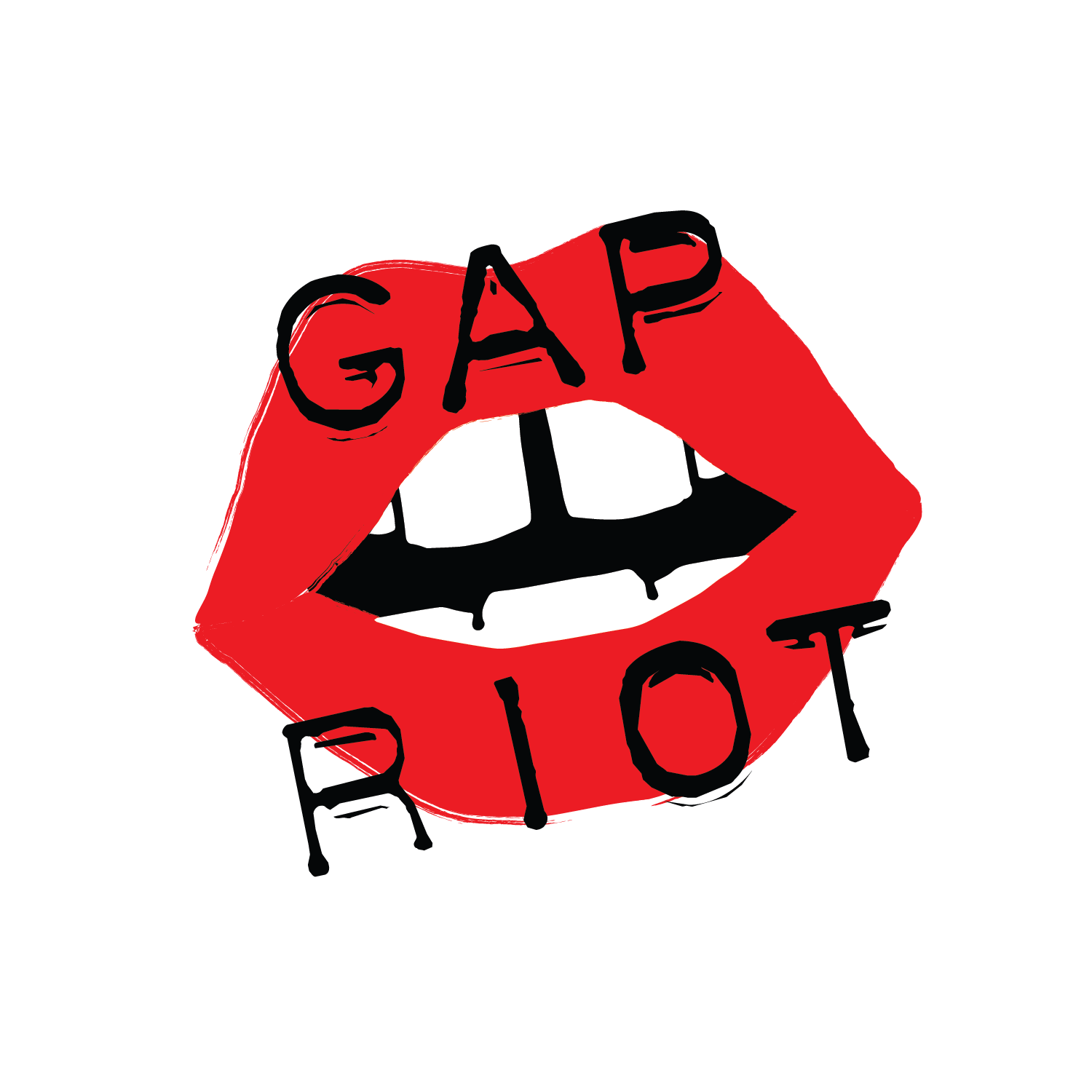From American poet and writer Jesse Rice-Evans comes Gap Riot Press’ first digital edition, HONOR/SHAME. In this femme, crip, queer text, Rice-Evans navigates deftly between confession and academic meditation, producing a text that proclaims its influences (and cites its sources!) at all turns. And those influences are diverse and wide-reaching. Rice-Evans reads through blog posts, newspaper articles, academic books, and episodes of Grey’s Anatomy, all the while asking: where is the place for a body labelled sick in a world where access is always an issue?
This digital edition is deliberately priced very low to increase access to this political, emotional, and beautiful work. The interactive PDF document contains lined and prose poetry, images, GIFs, hyperlinks, footnotes, and a whole lot of love. Typeset by Gap Riot’s Dani Spinosa with design help from Stace Schmidt and a cover designed by Jesse Pajuaar, HONOR/SHAME marks Gap Riot’s first entry into hybrid digpo, but not its last!
NB: A full and free list of works cited and suggested further reading is available below.
Sample Poem:
Showing Up Outerlude
I read Maggie Nelson on art, on the seemingly innumerable openings and installations she attends with or without her baby, her husband, whoever. In The Argonauts, she is always going, with endless bales of time available to attend such functions, which seems to me, disabled at 28, a cruel fiction, the kind of bourgeois ethos that white PhDs rub into everyone’s faces at loft parties [wait….
If I am unable to physically arrive somewhere, I am implicitly excluded from any ensuing dialogue; if I am to remain excluded from most social spaces due to accessibility barriers, a lack of a place to sit down, the inevitability of chemical contamination of perfumes, cheap or pricey, how then do I situate myself culturally?
The answer, I think, appears in rhetorics. Events have embraced livestreaming more and more, and interviews with public intellectuals litter the internet; if I can read, I can participate, I can show up in a disembodied, rhetorical sense. I am both not-there and, startlingly, lurking digitally, so who is to say what I have or have not seen? Or been invited into?
The location of critique ignored by anyone outside of the disability community is the question of accessibility, of what that term actually means outside of stairlessness, the inclusion of a ramp somewhere around the building. What about scent-free spaces? Non-fluorescent lining? A place to lay down? At least let me into the room.
Works Cited
This is the freely-accessible works cited list for Jesse Rice-Evans’s upcoming digital interactive chapbook, HONOR/SHAME, part of Gap Riot Press’s Summer 2018 line-up. Rice-Evans writes with an eye towards other issues in feminist, queer, race, crip, and tech studies, and wants to ensure that your thinking about these issues does not stop when you’re finished reading her gorgeous, heart-breaking, and hilarious chapbook. Read up on Rice-Evans’s intertexts, allusions, and arguments with other authors and their works by clicking the links or checking out the (*gasp*) books listed below.
Anastomosis. Wikipedia, 2018
Berkowitz, Amy. Tender Points. Timeless Infinite Light, 2015.
Clare, Eli. Brilliant Imperfection: Grappling with Cure. Indiana UP, 2013.
Cooper, Brittney, “Black death has become a cultural spectacle: Why the Walter Scott tragedy won’t change White America’s mind.” Salon, 8 April 2015.
Elizabeth, Maranda. “How to Support Your Disabled Friends in Winter—And Beyond.” The Establishment, 26 January 2017.
—. “See the Cripple Dance: Strength as intimacy, intimacy as strength.” Little Red Tarot, 5 September 2017.
—. “Why I’ve Learned to Embrace JOMO—The Joy of Missing Out.” The Establishment, 11 January 2017.
Hedva, Johanna. “Sick Woman Theory: Those Who Were Never Meant to Survive But Did.” Mask Magazine, January 2016.
Horvitz, Lori. “Life doesn’t come with trigger warnings. Why should books?” The Guardian, 18 May 2015.
Hurr, Hanna. “Let Them Eat Data.” Mask Magazine, July 2014.
Iadarola, Alexander. “Interview with Porpentine Charity Heartscape.” Mask Magazine, May 2017.
Kafer, Alison. Feminist, Queer, Crip. Indiana UP, 2013.
Kynard, Carmen. Vernacular Insurrection: Race, Black Protest, and the New Century in Composition-Literacies Studies. SUNY Press, 2014.
Mingus, Mia. “Access Intimacy, Interdependence and Disability Justice.” Leaving Evidence, 12 April 2017.
Nelson, Maggie. The Argonauts. Graywolf Press, 2016.
Torrid, “Bikinis.” Torrid.com. 2018.
Tovar, Virgie. “4 Problems with the Trauma-Leads-To-Fatness Narrative.” VirgieTovar.com, 15 June 2017.
Further Reading
as suggested by Jesse Rice-Evans
Bellamy, Dodie. Academonia. Krupskaya, 2006.
—. When the Sick Rule the World. Semiotext(e), 2012.
Bowen, Liz. Sugarblood. Metatron Press, 2017.
Chen, Mel Y. Animacies: Biopolitics, Racial Mattering, and Queer Affect. Duke UP, 2012.
Clare, Eli. Exile and Pride: Disability, Queerness, and Liberation. Duke UP, 1999.
Elizabeth, Maranda. “See the Cripple Dance: Bruises as a sign of healing, lilac season, and becoming nobody.” Little Red Tarot. 30 May 2017.
Huber, Sonja. Pain Woman Takes Your Keys, and Other Essays From a Nervous System. U of Nebraska P, 2017.
Kapil, Bhanu. Ban en Banlieue. Nightboat Books, 2015.
—. Schizophrene. Nightboat Books, 2010.
Kapil Rider, Bhanu. The Vertical Interrogation of Strangers. Kelsey St. Press, 2001.
Kleinman, M.D., Arthur. The Illness Narratives: Suffering, Healing, and the Human Condition. Basic Books, 1988.
Manguso, Sarah. The Two Kinds of Decay. FSG, 2008.
Moore, Anne Elizabeth. Body Horror: Capitalism, Fear, Misogyny, Jokes. Curbside Splendor, 2017.
Price, Margaret. Mad at School: Rhetorics of Mental Disability and Academic Life. U of Michigan P, 2011.
Scarry, Elaine. The Body in Pain: The Making and Unmaking of the World. Oxford UP, 1985.
Sontag, Susan. “Illness as Metaphor.” Illness as Metaphor and AIDS and Its Metaphors. FSG, 1990.
Washuta, Elissa. My Body is a Book of Rules. Red Hen Press, 2014.
Woods, Sara. Sara or the Existence of Fire. Horse Less Press, 2014.

